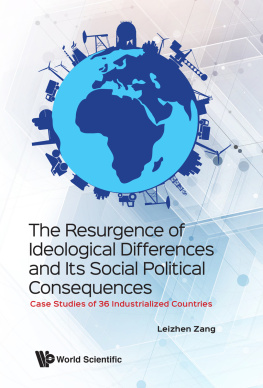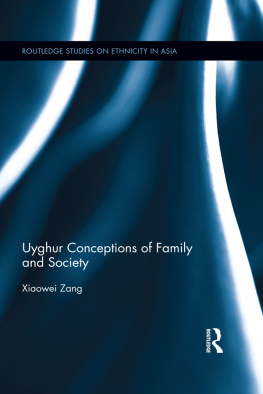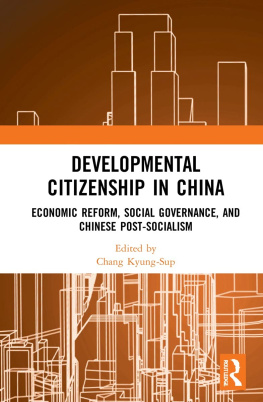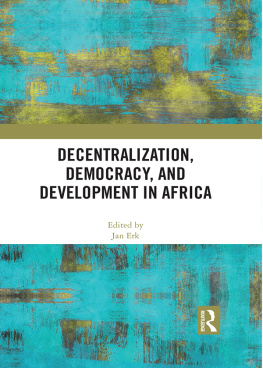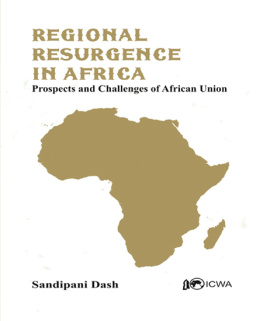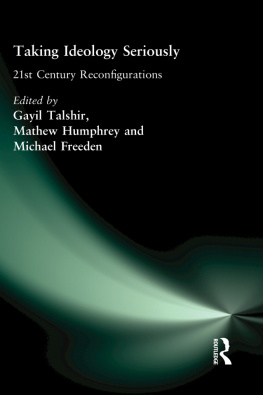The Resurgence of Ideological Differences and Its Social Political Consequences
Case Studies of 36 Industrialized Countries
The Resurgence of Ideological Differences and Its Social Political Consequences
Case Studies of 36 Industrialized Countries
Leizhen Zang
(University of Chinese Academy of Sciences, China)
Published by
World Scientific Publishing Co. Pte. Ltd.
5 Toh Tuck Link, Singapore 596224
USA office: 27 Warren Street, Suite 401-402, Hackensack, NJ 07601
UK office: 57 Shelton Street, Covent Garden, London WC2H 9HE
Library of Congress Cataloging-in-Publication Data
Names: Zang, Leizhen, author.
Title: The resurgence of ideological differences and its social political consequences : case studies of 36 industrialized countries / by Leizhen Zang, University of Chinese Academy of Sciences, China.
Description: New Jersey : World Scientific, [2018]
Identifiers: LCCN 2018035608 | ISBN 9789813272217 (hc : alk. paper)
Subjects: LCSH: Ideology--Developed countries. | Developed countries--Economic conditions. | Developed countries--Social conditions. | World politics--21st century.
Classification: LCC HM641 .Z36 2018 | DDC 140--dc23
LC record available at https://lccn.loc.gov/2018035608
British Library Cataloguing-in-Publication Data
A catalogue record for this book is available from the British Library.
Copyright 2019 by World Scientific Publishing Co. Pte. Ltd.
All rights reserved. This book, or parts thereof, may not be reproduced in any form or by any means, electronic or mechanical, including photocopying, recording or any information storage and retrieval system now known or to be invented, without written permission from the publisher.
For photocopying of material in this volume, please pay a copying fee through the Copyright Clearance Center, Inc., 222 Rosewood Drive, Danvers, MA 01923, USA. In this case permission to photocopy is not required from the publisher.
For any available supplementary material, please visit
https://www.worldscientific.com/worldscibooks/10.1142/11040#t=suppl
Desk Editors: Anthony Alexander/Lixi dong
Typeset by Stallion Press
Email:
Printed in Singapore
Preface
It is shown in The End of History which was written by Francis Fukuyama that the liberal democracy has flourished successfully until the end of history. However, there are still various obstacles to the development of liberal democracy in countries around the world. Compared with other political ideologies, such as communism and conservatism, the liberal democracy has not got an overwhelming stage, yet.
What is hard to ignore is that with the development of our society and economy, the ideological division of political parties, however, is getting more and more serious. Even in what is known as democracies, the political party polarization is often seen in reality by different parties in order to win the election campaign. Even in democracies, the influence of ideology on political reality is not weakened, but intensified. Based on this, the author, through studying 36 countries, discusses how the ideological changes that resulted from different party turnovers or government turnovers in different periods affect the political reality.
mainly advances some novel approaches to measuring the impact of party ideologies on political efficiency, which fills the gap that we are lack of effective methods to elucidate the degree of party conflicts between cabinet and parliament, even though scholars have distinguished between the unified government and the divided government. Besides, the author further measures the identity and differentiation index between political parties in control of the executive and legislative branches.
analyzes the impact of political turnover on government effectiveness and economic growth, which has long been deemed to be complex and difficult to make clear. Using the methods that are referred to in the previous chapter, the author finds that the political turnover may differ in their effects on government effectiveness, depending on countries themselves. While the effect on economic growth is insignificant, to be more precise, although government turnover might result in short-term economic fluctuations in some countries, its long-term effects on economy are insignificant.
studies the impact of political parties position on the left-right ideology scale on social security policy, whose findings have added that except for the left-wing, the right-wing incumbency is also inclined to spend more on social security in some democracies. In addition, I also find that the impacts of the leftright scale on social security expenditure may differ at some certain periods of time or the levels of welfare in some particular states.
mainly discusses the generally ignored relationship between workers strikes and ideological turnover, which has arrived at a conclusion that the activity level of strikes affects ideological turnover with lags. Conversely, the ideological turnover has no significant current or lagged effect on strikes.
In the end, I would like to express my heartfelt thanks to the editors, Mr. Anthony Alexander and Miss Lixi Dong, as well as the World Scientific Publishing Company. Thank you for your kindly help and approval. In addition, Im grateful to the senior fellows in Peking University, University of Tokyo, too many names to mention, in this field. Owing to your research, I can broaden my mind and conduct the researches in this book. Last but not least, Id like to thank all the contributors to this book from its design to publication. Without your efforts, this book cannot come out successfully.
About the Author

Dr. Leizhen Zang is an Associate Professor at the School of Public Policy and Management, University of Chinese Academy of Sciences, China. He is also a Japan Foundation Fellow at the Institute for Advanced Studies on Asia in the University of Tokyo and a research fellow at the Institute of State Governance in Peking University. His research covers comparative politics and public policy. His articles have been published in international peer reviewed journals, such as Research Policy, Technology Analysis & Strategic Management, Social Science Computer Review, Telecommunication Policy, China: An International Journal, etc. He has published an English book with Springer and Chinese ones with Social Sciences Academic Press (China) and Social Sciences Press. His current projects include being a co-author for the monograph Internet, Institution, and Innovation: Re-Interpreting the Complex Developmental Future of Our World published by Oxford University Press and being involved in the translations of The Oxford Handbook of Political Methodology and The Oxford Handbook of Public Policy with Chinese Peoples Publishing House. He is also the applicant and lead researcher for National Social Science Foundation of China.
Contents
Chapter 1
Getting Along: Novel Approaches to Measuring the Impact of Party Ideologies on Political Efficiency*
Party government has long been a focus of scholars, who have distinguished concepts of unified government and divided government (minority government) based on seat differences in government (cabinet) and parliament parties. However, such studies have been unable to obtain effective methods to elucidate the degree of party conflicts between cabinet and parliament. This chapter introduces and describes several novel measurement methods, such as Euclidean distance and Cosine distance, and compares their advantages along with disadvantages. We further measure identity and differentiation index between political parties in control of the executive and legislative branches.

